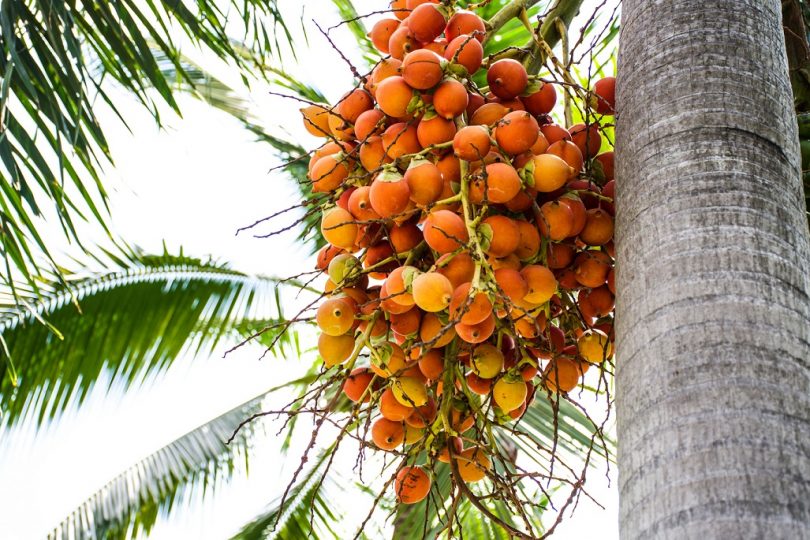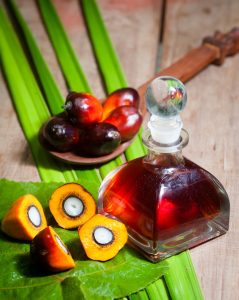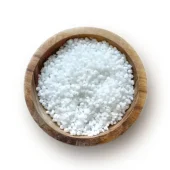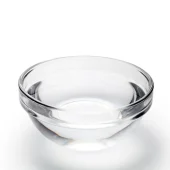We get numerous emails and phone calls here at Jedwards International every single day, ranging from drum pricing requests to inquiries about the various raw ingredients we supply. In an attempt to address some of the more common queries that are, in fact, very good questions, today’s blog focus is on oil from Palm.
Palm Oil, from the genus, Elaeis guineensis, is a single-stemmed plant in the Arecaceae family that can grow up to 65 feet in height and thrives in open, flat land with plenty of water. The palm’s fruit grow in bunches and are reddish in color. The fruit is considered a drupe, which means it has a fleshy outer layer surrounding a single seed. Both the flesh and the seed are rich in oil, which can be extracted. Palm Oil originated from West Africa as far back as 5,000 years ago. Evidence was discovered by archaeologists in the late 1800’s in a tomb in Abydos that it was used as a staple food crop in 3000 B.C.E. Further evidence suggests that people buried with casks of palm oil in Egyptian tombs indicated a reflection of a higher societal value. Palm Oil was discovered by European merchants trading with West Africans, who communicated the oil was popular for cooking. It was later discovered that Palm Oil was a favored ingredient for candle-making and an effective lubricant necessary for maintenance of industrial machinery during Britain’s Industrial Revolution. Accounts of European travelers indicate palm oil became an important item in the provisioning trade supplying the caravans and ships of the Atlantic slave trade. Increasing uses for palm oil were identified, primarily as the basis of soap and cosmetic products. Today, palm oil and its derivatives can be found in an array of food products, personal care items, cosmetic formulations and cleaning products.
There can be some confusion as to what, specifically, is the difference between Palm Fruit Oil, Palm Kernel Oil, Palm Olein and Red Palm Oil. Palm Fruit Oil (Palm Fruit Oil – RBD – S1369 and Organic Palm Fruit Oil – S1307) comes from the palm fruit, the reddish orange flesh that surrounds the palm seed. It is composed of fatty acids esterified with glycerol. About 37 percent of palm fruit oil is monounsaturated fat (oleic acid), 50 percent saturated fat (specifically the 16-carbon saturated fatty acid and palmitic acid), and 9 percent polyunsaturated fat. Jedwards’ supplies a refined palm fruit oil which is white to off-white in color, carrying a bland to nonexistent odor and taste and does not contain carotenoids. This oil is solid at room temperature. Refined Palm Fruit Oil is used in the manufacture of soaps, cleansers and other cosmetic products.
This refined palm fruit oil can also be fractionated (a separation process) to produce palm olein. Jedwards offers Palm Oil Olein – Organic (S1385) which is liquid in warm climates and Red Palm Super Olein (S1407) which is liquid at room temperature. The major difference between these two oleins is the level of refinement. The Red Palm Super Olein is further refined from the Red Palm Olein, resulting in a higher quality material while maintaining its rich nutrients. Both have a wide range of culinary and cosmetic applications.
Red Palm Oil (Virgin Organic Red Palm Oil – S1408) is cold pressed from the palm fruit, however this oil is virgin, not refined, thus maintaining the natural characteristic of the fruit, resulting in a reddish color, semi-solid at room temperature. Red Palm Oil is rich in antioxidant beta-carotene and lycopene, and a significant source of tocotrienol, from the Vitamin E family.
Palm Kernel Oil (Palm Kernel Oil – RBD – S1389 and Palm Kernel Oil – Organic – S1390) is extracted from the kernel or seed of the palm fruit. It contains mainly lauric acid and is more than 89 percent saturated. Palm Kernel Oil is commonly used in commercial cooking since the higher saturated fat content allows for greater stability at higher temperatures. Palm kernel oil is also a stiffer product than palm fruit oil, making it more desirable in formulations in the soap and cosmetic industry requiring this characteristic.
Another common question often asked regarding Palm Oil is if the vendors that Jedwards International sources from follow sustainable practices. Today, palm trees used for palm oil are grown throughout Africa, Asia, North America and South America, with 85% of all palm oil globally produced and exported from Indonesia and Malaysia. Unfortunately, many producers in these countries do not use sustainable measures. For those who are not familiar with why sustainability standards have become necessary, the palm oil industry is linked to major issues such as deforestation, habitat degradation, climate change, animal cruelty and indigenous rights abuses in the countries where it is produced. It has become widely known that large areas of land and forests are often cleared for the development of oil palm plantations, however Jedwards doesn’t source from vendors that partake in these offensive practices. Sustainable palm oil is an approach to oil palm agriculture to produce palm oil without causing deforestation or harming people. The environment community has been appeased somewhat with the formation of the RSPO, or Roundtable on Sustainable Palm Oil in 2004. This non-profit organization aims to unite stakeholders from all sectors of the palm oil industry in an effort to develop and implement credible standards for the entire supply chain of sustainable palm oil, as well as monitor and evaluate the economic, environmental and social impacts of the uptake of this material.
Jedwards International has taken measures to offset the controversy surrounding the palm oil industry by pursuing and purchasing from palm product manufacturers who adhere to accepted sustainability practices. Jedwards purchases all raw palm ingredients from producers who are RSPO members and predominantly from South American countries where deforestation is not an issue. Our Organic Palm Fruit Oil is also certified by the sustainable agriculture organization, Friend of the Earth, who bestowed Jedwards International with the Friend of the Earth Award, 2017.






